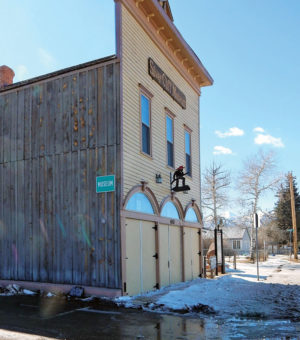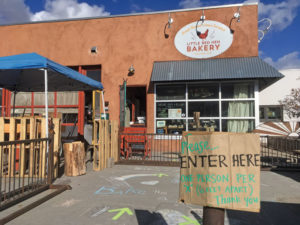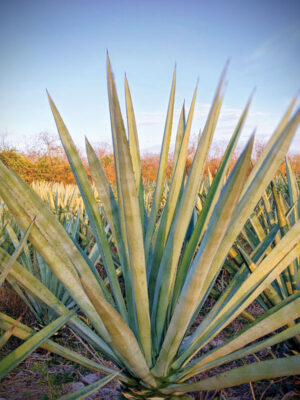By Ed Berg
During the first week of quarantine I went for a walk in the hills east of town, seeking stillness in the midst of turbulence. Eventually I came upon some Tibetan prayer flags and a meditation labyrinth all neatly laid out nearby. So I walked it. The two collie dogs I hike with were puzzled by this: herding dogs believe that all who wander are lost, and as I circled back and forth, it must have seemed to them that I’d lost my way, when actually I was finding it.
By the time you read this, we will all be more aware of the effects of epidemics and the differences between the world’s best medical system and its most expensive one, of dysfunctional governance, and of the brittle links in our long and costly food supply chain.
It was illuminating to read of customers finding empty shelves at Safeway and Walmart, then raging against helpless checkout clerks. We are so accustomed to shelves full of every conceivable item that we now assume an inalienable right to consume as much as we want from an unlimited supply … a supply that exists only in our minds. The pandemic will remove a few presumptions, there will be some discomforts and fears, but it will create some opportunities to improve the way we use our land and water and how we supply our food.
Store managers don’t decide how much we can buy and consume; natural systems do that, and the penalties for overconsumption are unavoidable. Albert Einstein said, “You cannot solve a problem using the same thinking that created it,” but thousands of internet voices are attempting to predict and create the future using the same thinking that created our vulnerability to the virus and the resulting financial mess. You can hardly blame them: it started in Mesopotamia ten thousand years ago. Babylon fell into ruin not because of invading hordes but because they allowed their overworked fields to erode and fill in their irrigation canals. No hordes were needed to wreck the biggest military/economic entity then on Earth: no soil, no water; no food, no empire.
But this isn’t Mesopotamia … yet. They didn’t have historical precedents or the internet to learn from. We can instantaneously search out information, make a choice of whether to believe it, and then decide how to act on it.
This valley has a history of being occupied by waves of immigrants. Before the Europeans arrived, the valley was occupied by immigrants from Asia. It was a grassland that fed a huge variety of grazing animals, and the immigrants had little impact on the ecosystems. Then Europeans immigrated from well-watered lands, who didn’t understand the fragile, complex relationships between grasses, herds, soil, water and food in the west, and we impacted it greatly.
Salida is here because the railroad was here, and the railroad is here because mineral wealth was discovered some 160 years ago. As wealth was discovered across the American West, whether silver, lumber or beef, the railroads arrived, and as soon as that happened, mountainsides were lumbered off, mines leveled whole mountains, and cattle herds were increased tenfold, all to supply markets in the east. Studies have shown that it only took about ten years after the arrival of railroads in any area for the grasslands and mountainsides to start eroding and the all-too familiar arroyos of the west to appear.
The question is, will we learn from that and act on it?
The NO side of my brain says, “Look at Google Maps. See the patches of green and brown all across the valley? Green is where fields are still being irrigated, brown is around subdivisions. Little deserts are spreading virally (hah!) into green pastures. We’re recreating a little Babylon, one country home at a time. We’ll never learn.”
The YES side of my brain says, “Look at what our business owners are doing, shifting food service from tabletops to curbsides, taking links out of that long, rusty supply chain. Look at what some local ranchers and farmers are doing, selling direct to consumers. There are LOTS of opportunities!”
The NO side replies: “We’re creating our own Babylon. Nestlé Waters North America is applying to Chaffee County to renew their water extraction from the Upper Arkansas Valley. The 65 million gallons of water they extract every year are supplied by agricultural irrigation up-valley. Down-valley from Nestlé’s wells are fields that depend on aquifer water to grow meat and vegetables. We’ll never learn.”
To which the YES side quietly responds: “We have a chance to change the way we occupy the land and produce our food. We have Zoom teleconferences to share ideas and design better ways to supply our needs than shipping in everything we use from some other state or country. We have a farmers’ market and we have ranchers and farmers who can stock some of those supermarket shelves with fresh, wholesome food. We have social media to reach the consumers. There are LOTS of opportunities! “
But farmers and ranchers need capital to gear up, expand their operations and shorten those supply chains.
Yes, no, yes, no. Where’s the serenity I found walking the maze? We can help create our future; it doesn’t have to just fall on us. We can continue dreaming that wealth is a shiny new vehicle or a luxury home, or shift to the dream of knowing a local farmer who offers you healthy food in return for your investment in a crop share, funding a greenhouse or cash for irrigation equipment. It will be more satisfying than a closetful of toilet paper or a new granite countertop. We can break the chains that tie our tables to farmers in China and India, and at the same time help to keep some green pastures from becoming little deserts.
There are easy ways to contribute to the YES and the green. Guidestone Colorado supports local farmers through networking their needs, resources and markets. You can make a tax-deductible contribution by emailing info@guidestonecolorado.org.
SOIL Sangre de Cristo, (Slow Opportunities in Investing Locally) is the local member of Slow Money Institute, which provides interest-free loans to producers through tax-deductible contributions. Contact them by emailing soilsangredecristo@gmail.com.
Check them out. Their directors and the farmers they support are your neighbors.
When I finished walking the labyrinth, the dogs were lying in the shade of a juniper, having given up on me ever finding my way out of the maze. Perhaps you have too, so I’ll stop here by thanking Salida Mountain Trails for the labyrinth.
Ed Berg is recovering from his retirement from the oil industry by becoming an agricultural activist. It pays to give back to the Earth.



